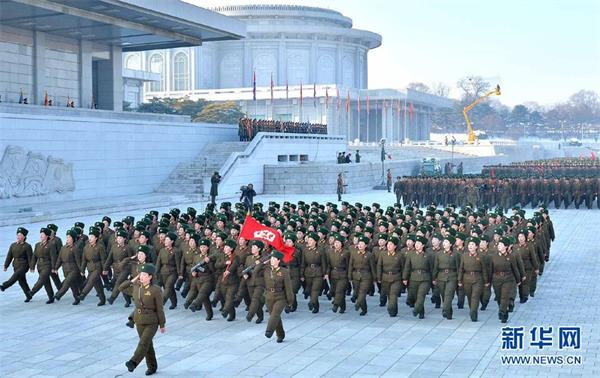


The UN General Assembly on Thursday passed a resolution to condemn North Korea's "ongoing systematic, widespread and gross violations of human rights." The resolution also urged the Security Council to consider transferring the situation in North Korea to the International Criminal Court.
The resolution received 119 votes in favor, 19 against, and 48 abstentions. China, Russia, Cuba and Syria voted against it.
China's vote does not mean we endorse the human rights situation in North Korea. The vote is based on China's principle of no interference in other countries' internal affairs.
The different votes are not just a result of different values, but also made out of diplomatic concerns. More than 40 countries chose to abstain. It further indicates the complexity of international politics.
Some people in China expressed different ideas on China's vote against the resolution. They wished China would join the international camp condemning North Korea. These people are apparently influenced by unfavorable reports about the country in the international media.
The abrupt canceling of a North Korean girl band's planned show in Beijing has also created some sentiments among the Chinese people.
North Korea should be aware of the fact that the Chinese government made the vote under certain domestic pressures. It should also be grateful.
It is inevitable that sentiments are aroused over China-North Korea ties now and then. But the Chinese government must keep a sober mind when dealing with diplomatic relations with North Korea. North Korean authorities should also strive to provide a positive environment, so that the Chinese public can better appreciate the country.
Although forceful orders from outside are not acceptable, a certain degree of external pressure is not necessarily a bad thing. This is what China has learned in the past decades. China has adopted quite a few human rights concepts from the West. Today many of these concepts have become an integral part of Chinese society.
Of course, the process is full of conflicts. China has upheld its own political system, without reshaping it in the way the West hoped. This has ensured China's stability. The country is undergoing profound reforms without falling into an abyss of disorder.
China has been resisting Western pressures, but at the same time absorbing what is useful. During the process of absortion, we have not fallen under the West's ideological control.
The process is unique, which is a result of China's willingness to open up but walk its own way. History will prove such uniqueness led to China's success.
 Are these the world’s scariest landing strips?
Are these the world’s scariest landing strips? In pics: Left behind children in China
In pics: Left behind children in China Eight modern day engineering marvels of China
Eight modern day engineering marvels of China Chinese beauty with sexiest bottom
Chinese beauty with sexiest bottom Charming female bodybuilders of Chengdu University
Charming female bodybuilders of Chengdu University Polish sports stars strip off for risqué calendar
Polish sports stars strip off for risqué calendar Spectacular aerial photos of the Three Gorges
Spectacular aerial photos of the Three Gorges Contestants of Mrs. Globe pose for photo in Shenzhen
Contestants of Mrs. Globe pose for photo in Shenzhen
 Bikini models attend hot pot banquet in Hefei
Bikini models attend hot pot banquet in Hefei Top 20 hottest women in the world in 2014
Top 20 hottest women in the world in 2014 Top 10 hardest languages to learn
Top 10 hardest languages to learn 10 Chinese female stars with most beautiful faces
10 Chinese female stars with most beautiful faces China’s Top 10 Unique Bridges, Highways and Roads
China’s Top 10 Unique Bridges, Highways and Roads Smog-free skiing
Smog-free skiing Milk a click away
Milk a click away China set to ramp up FTA program
China set to ramp up FTA program US arms sale to disrupt cross-Straits peace
US arms sale to disrupt cross-Straits peaceDay|Week